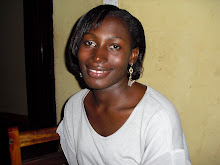This was a one day seminar held on 3th Feb 2010 with Jack Whitehead as a Facilitator. Jack is an action researcher whose experience and point of departure lies in doing and facilitating master’s and doctoral students for thirty six years. The seminar was attended my master’s students in vocational pedagogy as well as their tutors at HiAk. The seminar was headed ‘creative ways of documenting Research in Improvement of one’s practice and related validity issues.’
Learned in this seminar
One cannot have his/her action research validated without considering the ethical values. Ethical values in Action research vary with culture.
In a Living educational theory approach to action research and human existence, individuals hold their lives to account by producing explanations of their educational influences in their own learning in enquiries of the kind
A person’s ontological values/ way of thinking/ how he/she does his/her work motivates him or her all the time. In a research, I have to use my own creativity and originality. For example; freedom which is a passion, honesty is absolute and requires one to be prudent, commitment to doing things different leading to change
Indigenous cultural knowledge may also have a higher learning result than the formal one. I believe and have experiences that learning at the work place has a higher knowledge retention than the formal way.
Paying attention to anything in Action Research enhances it, The cause-effect phenomenon does not apply to Action research.
Validity;
I validate my findings by reflecting upon the usefulness of the findings to my learning process. An action reflection cycle is a tool. During validation, I ask myself a question as “how do I strengthen my explanations of my learning about the influence of the data in response to the question?” This question is answered with the questions below;
Ø Is my explanation as comprehensible as it could be?
Ø Could I improve the evidential basis of my claims to know what I am doing?
Ø Does my explanation include awareness of historical and cultural influences in what I am doing and draw on the most advanced theories of the day?
Ø Am I showing that I am committed to the values that I claim to be living by? This judges my authenticity
These questions could be answered by being aware of the power of authentic expressions visualizing my work, use of social media such as video, documentation through blogs, digital photography, audio recordings etc as important in portraying one’s embodied knowledge. A public knowledge base could also be created through video conferences. This enables the researcher to identify how other people see her.
The passion and expression of one giving a narrative can hardly be portrayed with words/texts. This is better expressed in a video form.
Action research conversations are also important in validation of one’s findings and if not well handled could affect the quality of one’s findings. Everything educational is values-led. Make my judgment basing on the data collected. I should then democratically evaluate this data. One may dispute what is valuable or better but I need to understand the world from my point of view as well as having integrity of my own value.In writing something credited for a master’s degree, one needs to find his/her
Subscribe to:
Post Comments (Atom)

No comments:
Post a Comment